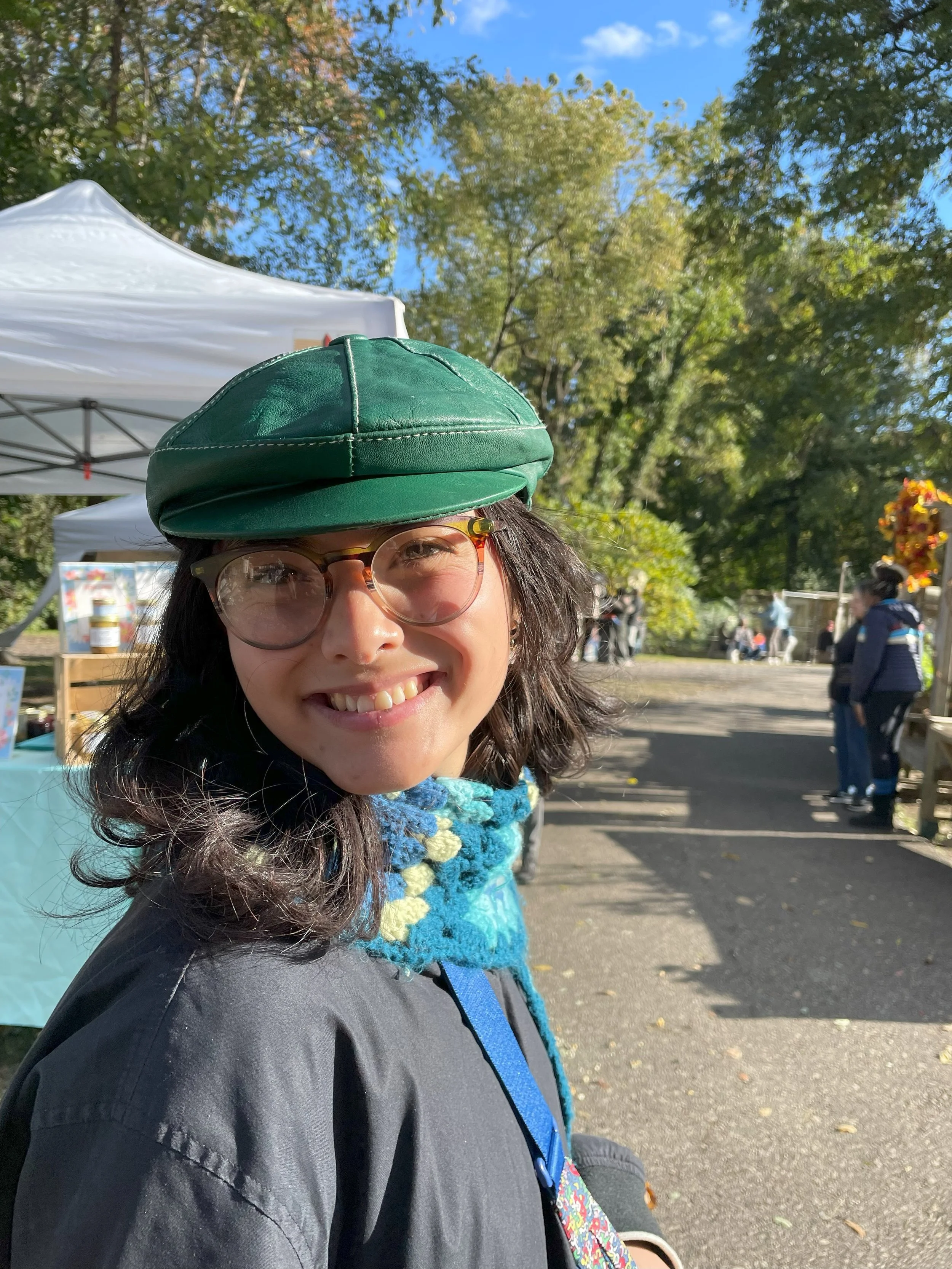Veronica Jacome
Veronica Jacome is an Assistant Professor of Energy Geography at Temple University. She holds a B.S. in Engineering Physics from University of Illinois at Urbana-Champaign, and a M.S. and Ph.D. from University of California, Berkeley, in Energy and Resources, with an emphasis in Critical Theory. Dr. Jacome’s research covers energy systems with a focus on electric power grids evaluation and history, the political economy of energy development, theories of Global South, and Science and Technology Studies.
Salma Elmallah
Postdoc, Arizona State University
Salma is a postdoctoral researcher at Arizona State University. She uses qualitative and quantitative methods to research the local politics and lived experiences of energy transitions and decarbonization. She holds a PhD from the Energy and Resources Group at the University of California Berkeley and a BSc in Electrical Engineering from the University of Alberta.
Kelly Haggerty
PhD, Geography, Temple University
My research background involves using qualitative geographic and anthropological methods to examine human's relationship to garbage in urban environments. This began during my B.A. in anthropology at Bloomsburg University of Pennsylvania, where I was interested in the scale of food waste in urban agriculture. Following my B.A., I wrote my M.S. geography thesis, The Garbage That We Eat about the urban metabolism of food waste in New Orleans, Louisiana. Between my M.S. and now, I directed a non-profit called Food Rescue US - New Orleans and organized the food recycling chapter of the New Orleans Food Policy Council. My PhD journey in the Department of Geography, Environment, and Urban Studies at Temple University will look at garbage more generally and consider human's relationship to material waste through a political, economic, social, and affective lens.
John-Paul Keblinski
PhD, Geography, Temple University
I am a broadly trained geographer interested in exploring the linkages between renewable energy transitions and our changing relationships to land management and environmental stewardship. My interest in this topic began during my M.A. at Binghamton University, where I studied land-use conflicts between agriculture and large scale solar development. In my doctoral work, I hope to explore these issues overseas, focusing on renewable energy led rural transformations in Poland.
Cristina Montanes Crespo
PhD, University of California, Berkeley
I am an Industrial Engineer, a PhD Candidate at the Energy and Resources Group (UC Berkeley), and a researcher in the Energy Markets and Policy Department at the Lawrence Berkeley National Laboratory. My doctoral research centers on residential energy transitions, with a focus on electrification modeling, energy poverty metrics, and a strong commitment to advancing energy equity. My projects have utilized energy modeling to predict changes in residential load patterns driven by demand electrification and rising cooling demands due to climate change, helping to inform distribution grid planning. Additionally, I’ve conducted resident interviews to understand perceptions of home electrification in the context of increasing grid unreliability caused by climate-induced events. At LBNL, my work focuses on electricity storage dispatch within energy markets, assessing market value opportunities and regulatory frameworks for hybrid wind+storage and solar+storage systems. Looking ahead, I am eager to apply my analytical skills to further explore decarbonization strategies.
Mina Schneck
MS, Geography, Temple University
Mina is a geographer with her bachelor's degree in Environmental Studies and a Professional Science Masters in Geographic Information Systems from Temple University. Her work encompasses a wide range of topics and includes the E-G Central Pennsylvania energy project, in which she conducted ethnographic research to gather a grasp on rural perspectives towards energy and energy preferences. She also recently completed an independent GIS analysis for the Philadelphia Streets Department, where she created an automated process for her team to easily identify local roadways that are eligible for designation to the FHWA roadway network and related funding. With a strong background in cartography, Mina is most passionate about mapping the bigger picture, and further delving into the geographic contexts that lie within the map. She is also eager to find ways of integrating GIS with any of her research with a goal of improving accessibility and exposure to the tool.
Christian Emmanuel Bruku
PhD, Geography, Temple University
I am an energy-environment geographer with research experience at the intersection of political ecology, political economy, and African studies. At the heart of my work is a commitment to showing how peripheralization is produced, reproduced, and reinforced by different factors across distinct spatial scales.




